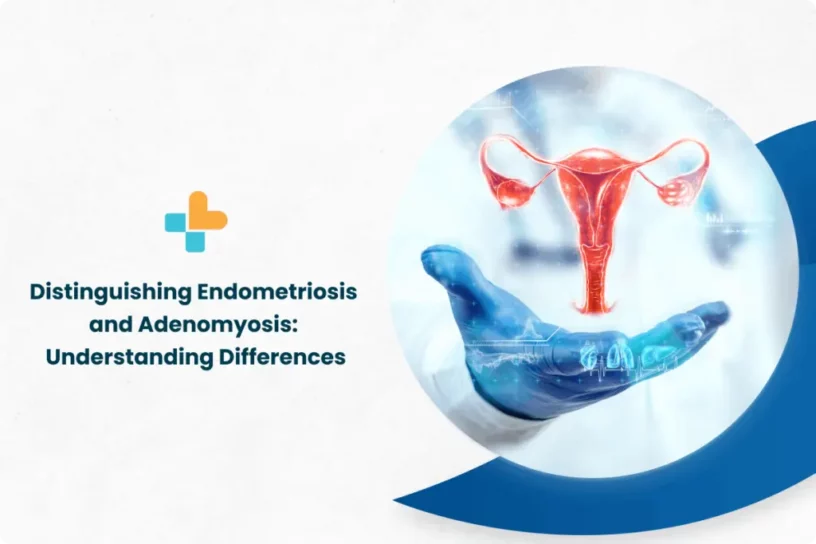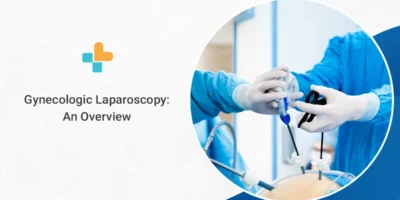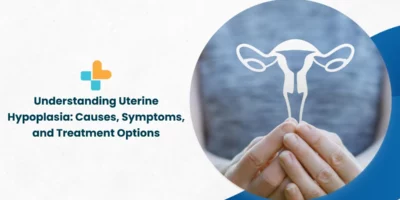Introduction
Adenomyosis and endometriosis both affect the endometrial tissue that lines the uterus. However, they are two different conditions that develop in unique ways and have various symptoms. Both of these conditions cause abnormal growth of the tissue.
Adenomyosis is a condition where the uterus enlarges due to the growth of the endometrial lining in the muscular tissue of the uterus instead of inside the uterus. This results in painful periods as blood from the uterus leaks through the vaginal canal and the walls of the uterus. The uterus can double or triple its size due to the extra tissue that grows in adenomyosis.
Endometriosis is a condition where cells that resemble the endometrial cells grow outside the uterus. This condition is most commonly found in the ovaries, fallopian tubes, and pelvic lining. The abnormal tissue growth can cause discomfort and also affect fertility.
Although both endometriosis and adenomyosis affect the endometrial tissue, they are different.
This blog highlights about the difference between endometriosis and adenomyosis. So, please keep reading.
What causes endometriosis & adenomyosis?
The exact causes of both endometriosis & adenomyosis remain unknown. However, certain risk factors may increase the risk of endometriosis and adenomyosis. Let’s learn more about these risk factors.
Risk factors that may increase the risk of endometriosis include the following,
- Having a family history of endometriosis
- Getting early periods, usually before turning 11 years old
- Having monthly menstrual cycles of less than 27 days
- Experiencing heavy periods that last longer than 7 days
- Late menopause
- Infertility
- Having low body fat
- Having any defects in the uterus or fallopian tubes
- Heavy alcohol intake or more consumption of caffeine
- Immune system problems
Risk factors that may increase the risk of adenomyosis include the following,
- Having a high body mass
- A history of uterine surgeries like C-sections or fibroid removals
- Using oral contraceptives or tamoxifen medication
- Having had at least one child
- Getting early periods, usually before turning 10 years old
- Having monthly menstrual cycles of less than 24 days
- High usage of antidepressants
Differences between endometriosis & adenomyosis
Although endometriosis and adenomyosis are two conditions with some similarities, they also have some key differences between them. Some of them are,
- The location of tissue growth is different in endometriosis and adenomyosis. Endometriosis is a condition which occurs when endometrial tissue grows outside of the uterus, while adenomyosis is a condition which occurs when the endometrial tissue grows within the muscular wall of the uterus.
- Certain risk factors may differ for both conditions.
Similarities & differences in Symptoms of endometriosis & adenomyosis
Both endometriosis and adenomyosis may have some similarities in their symptoms, such as pain in the pelvic region, especially during periods, experiencing unusual period problems like periods lasting longer than usual or a missed period, experiencing heavy periods, and infertility.
Symptoms of endometriosis include the following,
- Pain during intercourse
- Painful mensuration
- Enlargement of the uterus
- Severe pain in the pelvic region
- Periods lasting longer than usual
- Experiencing unusual bleeding
- Fertility issues
Symptoms of adenomyosis include the following,
- Pain during intercourse
- Painful mensuration
- Pain in the pelvic area
- Cramps in the pelvic region
- Painful urination or bowel movements
- Fatigue
- Nausea
- Diarrhea
Diagnosis of endometriosis & adenomyosis
To diagnose endometriosis & adenomyosis, the doctor will study the patient’s medical history and the symptoms being experienced, such as the onset of symptoms and for how long the patient has been experiencing them.
The doctor may conduct tests like urine, pap, or pregnancy tests to eliminate any other possible cause of pelvic pain.
Diagnosis of adenomyosis
Adenomyosis is a condition where the uterus enlarges and becomes tender when pressed. So, the doctor may physically examine the patient to feel the uterus. Additionally, adenomyosis may also be It can be diagnosed using an ultrasound or MRI scan. However, in certain cases, it may not be detected until after a hysterectomy, when lab testing of the uterine tissue is done.
Diagnosis of endometriosis
To diagnose endometriosis, the doctor will study the patient’s medical history and may also ask about the family history of endometriosis. The doctor may also perform a physical examination to check for cysts or other problems. Additionally, endometriosis can sometimes be detected through ultrasound and MRI scans. However, an MRI scan may not be able to detect small areas outside the tissue. The only definitive method of diagnosing endometriosis is through surgery, where the doctor inspects the abdomen for endometrial tissue outside the uterus and removes small samples for laboratory testing.
Treatments for adenomyosis & endometriosis
The treatment for adenomyosis and endometriosis depends on the patient’s symptoms and overall health. It may also differ depending on the fertility concerns of the patient. For individuals who don’t want pregnancy but want to maintain fertility, the doctor will prescribe medications that can address both adenomyosis and endometriosis and preserve future fertility.
To manage the pain symptoms, non-steroidal anti-inflammatory drugs (NSAIDs) may be prescribed. To manage endometriosis, hormone treatments such as gonadotropin-releasing hormone agonists, progestin, and birth control pills may be prescribed. These hormone medicines regulate the hormonal cycle and reduce the growth of endometrial tissue, preventing the formation of new scars. These treatments, however, do not eliminate the condition.
Treatment of adenomyosis
If the symptoms are mild, in such cases, OTC anti-inflammatory medications may help when used before and during periods to alleviate pain. However, in case of severe symptoms, the following treatments may be given,
- Oral contraceptive pills
- Gonadotropin-releasing hormone (GnRH) agonists and antagonists
- Progestin in high doses
- Intrauterine device which releases levonorgestrel
- Uterine artery embolization
- Endometrial ablation
- MRI-guided focused ultrasound surgery
- Laparoscopic surgery
- Hysterectomy
Treatment of endometriosis
If the symptoms are mild, OTC anti-inflammatory medications may help in such cases. However, in case of severe symptoms, the following treatments may be given,
- Hormonal treatment like oral contraceptives
- Laparoscopic surgery
- Hysterectomy
Conclusion
Although adenomyosis and endometriosis may appear to be similar, they have certain differences. Both of these conditions are progressive. However, when diagnosed and treated on time, they are highly treatable. Hence, it is essential to notify your healthcare provider upon experiencing any pain in the pelvic area or other unusual period problems.
If you have any measurement or fertility issues, you can schedule your appointment with our doctor today. Our team of experts at Ayu Health is always there with our patients to address any fertility concerns they may have. In addition, our highly qualified and experienced doctors provide the right diagnosis and treatment for various conditions, including Adenomyosis and endometriosis.
Our Hospital Locations
Gynaecology Surgery Hospitals in Chandigarh | Gynaecology Surgery Hospitals in Bangalore | Gynaecology Surgery Hospitals in Jaipur | Gynaecology Surgery Hospitals in NCR | Gynaecology Surgery Hospitals in Hyderabad
Our Doctors
Gynaecology Surgery Doctors in Chandigarh | Gynaecology Surgery Doctors in Bangalore | Gynaecology Surgery Doctors in Jaipur | Gynaecology Surgery Doctors in NCR | Gynaecology Surgery Doctors in Hyderabad
About the Author

Dr. S. Goel
Dr. S. Goel is a renowned Internal Medicine Specialist currently practicing at Ayu Health, Bangalore. He is a Specialist in Internal Medicine, Diabetes HTN, Paediatric Care, and Family Medicine.




